
In-Depth | Imran Khan blames 'foreign intervention', but is poor economics the reason behind his fall?

In-Depth | Imran Khan blames 'foreign intervention', but is poor economics the reason behind his fall?
Imran Khan, the man who lifted Pakistan's maiden cricket world cup title in 1992, rode to power with high hopes in 2018. A bulk of Pakistanis viewed him as the politician who will "fix the broken system", initiate reforms, and expedite development. Four years down the line, Khan appears to be headed back to the pavilion with the target yet to be achieved.
What has cut short his political innings? An all-guns-blazing Khan has blamed "traitors", a reference he uses for the Opposition; and the United States, which he claims is miffed with his "independent foreign policy".
Through "foreign intervention", an attempt is being made to install an "imported government", he said on April 8, a day before the no-trust vote was scheduled in the National Assembly on orders of the Supreme Court.
But a vast section of Khan's critics, along with his detractors, find "incompetent" handling of the economy as the reason behind, what is likely to be, the prime minister's unceremonious exit.
The spiraling inflation has turned his government "extremely unpopular" among the middle class, which explains why over a dozen lawmakers from the ruling party have switched to the Opposition camp, they say. Ahead of the no-trust vote, the anti-Imran Khan camp had claimed the support of 176 lawmakers, which is four more than the halfway majority mark.
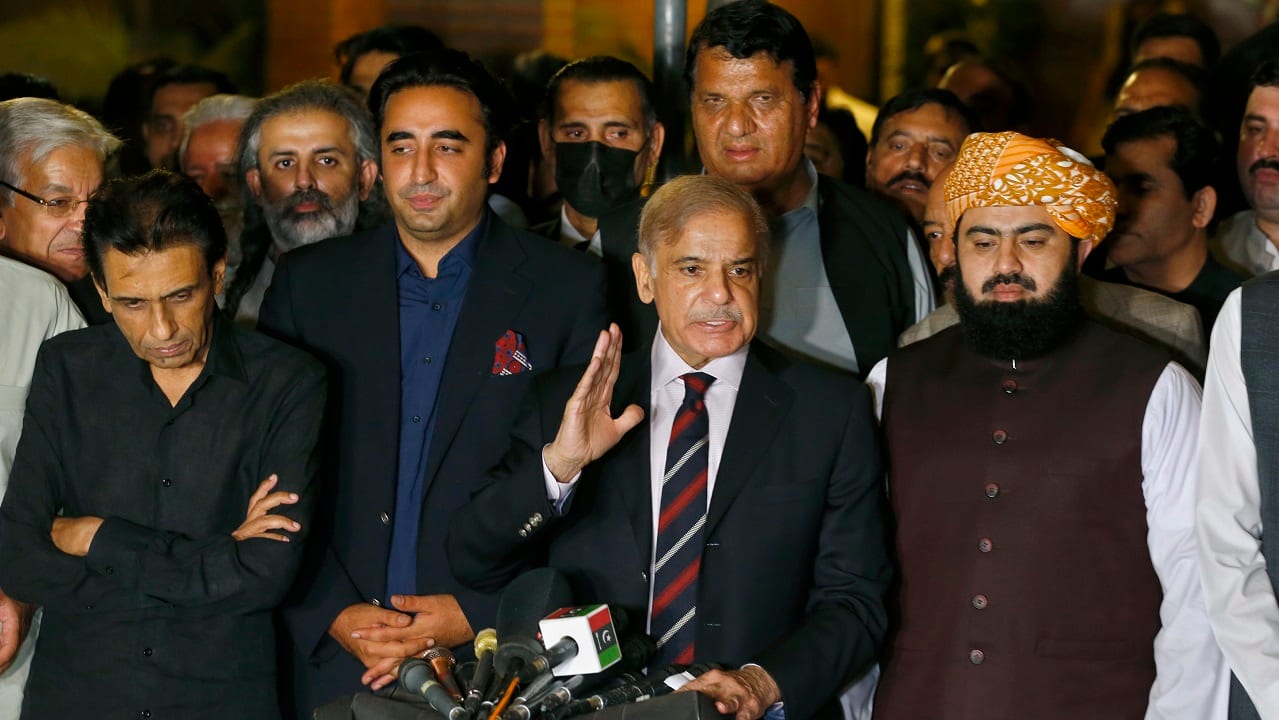 Pakistan Muslim League-Nawaz (PML-N) leader Shahbaz Sharif (center) is leading the Opposition alliance that has tabled the no-confidence motion against Imran Khan's Pakistan Tehreek-e-Insaf government (AP Photo/Anjum Naveed)
Pakistan Muslim League-Nawaz (PML-N) leader Shahbaz Sharif (center) is leading the Opposition alliance that has tabled the no-confidence motion against Imran Khan's Pakistan Tehreek-e-Insaf government (AP Photo/Anjum Naveed)
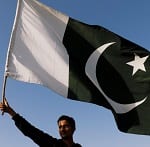
'Naya Pakistan', which Khan used as a poll plank before the last elections and extensively referred to after assuming power, largely refers to a populist welfare state. While it may have struck a chord with the masses, the spree of welfare schemes were not fiscally viable considering the prevalent situation of the Pakistani economy, suggest experts.
One of Khan's foremost mistakes, economists explain, was his reluctance in approaching the International Monetary Fund (IMF) after assuming power. This was in accordance with his pre-poll rhetoric, which lambasted the previous governments for "moving around with a begging bowl" before the Washington-based lender.
"The fundamentals in the economy were weak at the time when Imran Khan came to power. One of the major challenges were the depleting reserves, high current account deficit, and domestic fiscal challenges," Dr Aadil Nakhoda, Member, Economic Advisory Group of the Islamabad-based Prime Institute, told Moneycontrol.
It was only in May 2019 when Khan reversed his approach and agreed for a $6- billion loan from the IMF, which also necessitated a 39-month austerity program to be adopted by his government.
The delay in seeking the bailout package led to various effects, including a reduction in imports. "As the government delayed approaching the IMF, it had to take measures to reduce import demand in order to lower the current account deficit," Nakhoda added.
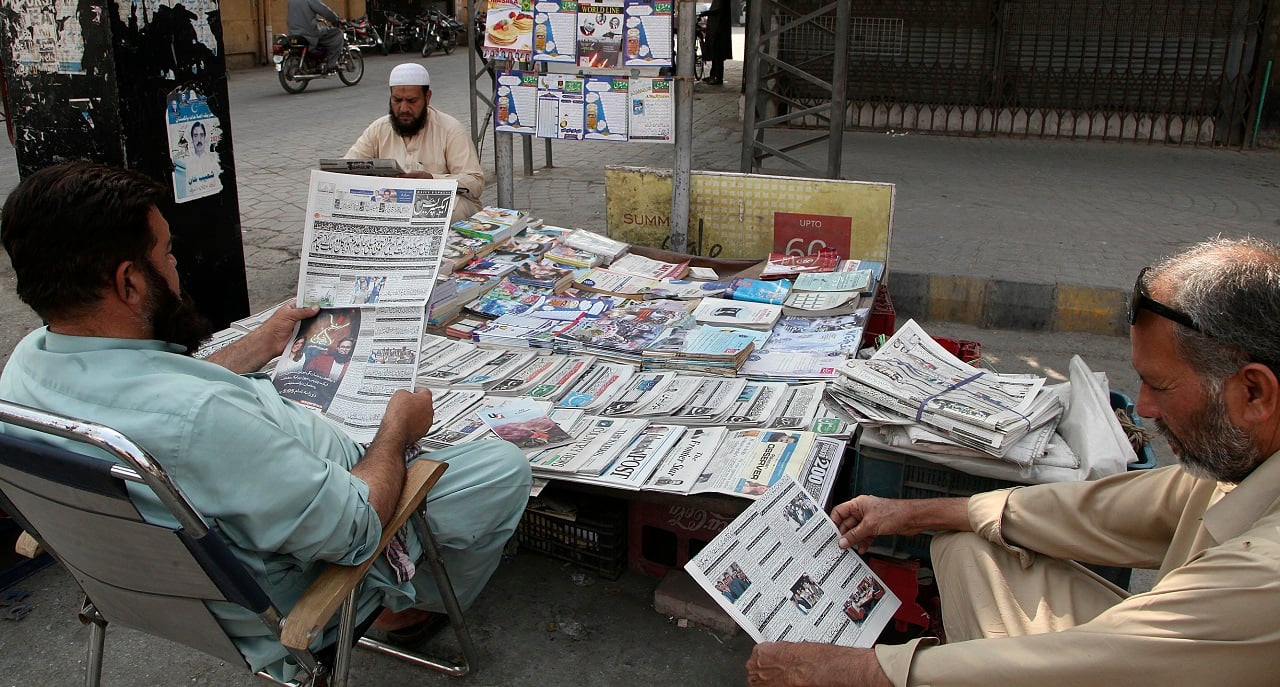 People read copies of newspapers carrying headline of the Supreme Court decision against Imran Khan's move to dissolve the assembly, at a stall in Peshawar on Friday, April 8, 2022 (AP Photo/Muhammad Sajjad)
People read copies of newspapers carrying headline of the Supreme Court decision against Imran Khan's move to dissolve the assembly, at a stall in Peshawar on Friday, April 8, 2022 (AP Photo/Muhammad Sajjad)
"The best solution at the time was to go for an IMF program and austerity measures. They paid off after a lag with Pakistan experiencing more than four percent growth even during the COVID period when economies around the world were shrinking," Karachi-based business journalist Ariba Shahid said while speaking to Moneycontrol.
Despite the bailout program mandating cuts in social and development expenditure, Khan shunned away from the calls for fiscal prudence, particularly after the outbreak of COVID-19.
The setting up of the National Command and Operation Center to manage non-pharmaceutical interventions, the successful implementation of the Ehsaas program that provided monthly stipends of up to Rs 12,000 to 13.2 million people during the lockdown period, and the different packages offered by the State Bank of Pakistan to assist the stressed businesses aided the public but worsened the fiscal deficit.
In November last year, the government introduced the Rs 120 billion food subsidy scheme aimed at benefitting low-income households. This was followed by the rollout of the Kamyab Pakistan Programme, a massive Rs 407 billion scheme to distribute interest-free loans.
Khan, in February this year, also announced another round of electricity subsidy that would bring down the rates by Rs 5 per unit. The subsidy, however, would cost the exchequer around Rs 237 billion in the next four months.
In the same month, the government also reduced the rate of petrol and diesel by Rs 10 per litre, despite the increase in global prices due to the Russia-Ukraine conflict.
These measures have contributed to shooting the budget deficit to Rs 4.3 trillion, which is the highest ever in the country's history and equals to eight percent of the gross domestic product.
"Though the budget deficit is high, it does not necessarily mean poor economics. The high deficit is due to welfare measures undertaken by Imran Khan...During the COVID-19 period, we saw no food riot in Pakistan. Several schemes including the Kamyab loan programme has put money into the hands of people," said Raja Gopal Chakraborti, Professor, Department of South & Southeast Asian Studies, Calcutta University, while speaking to Moneycontrol.
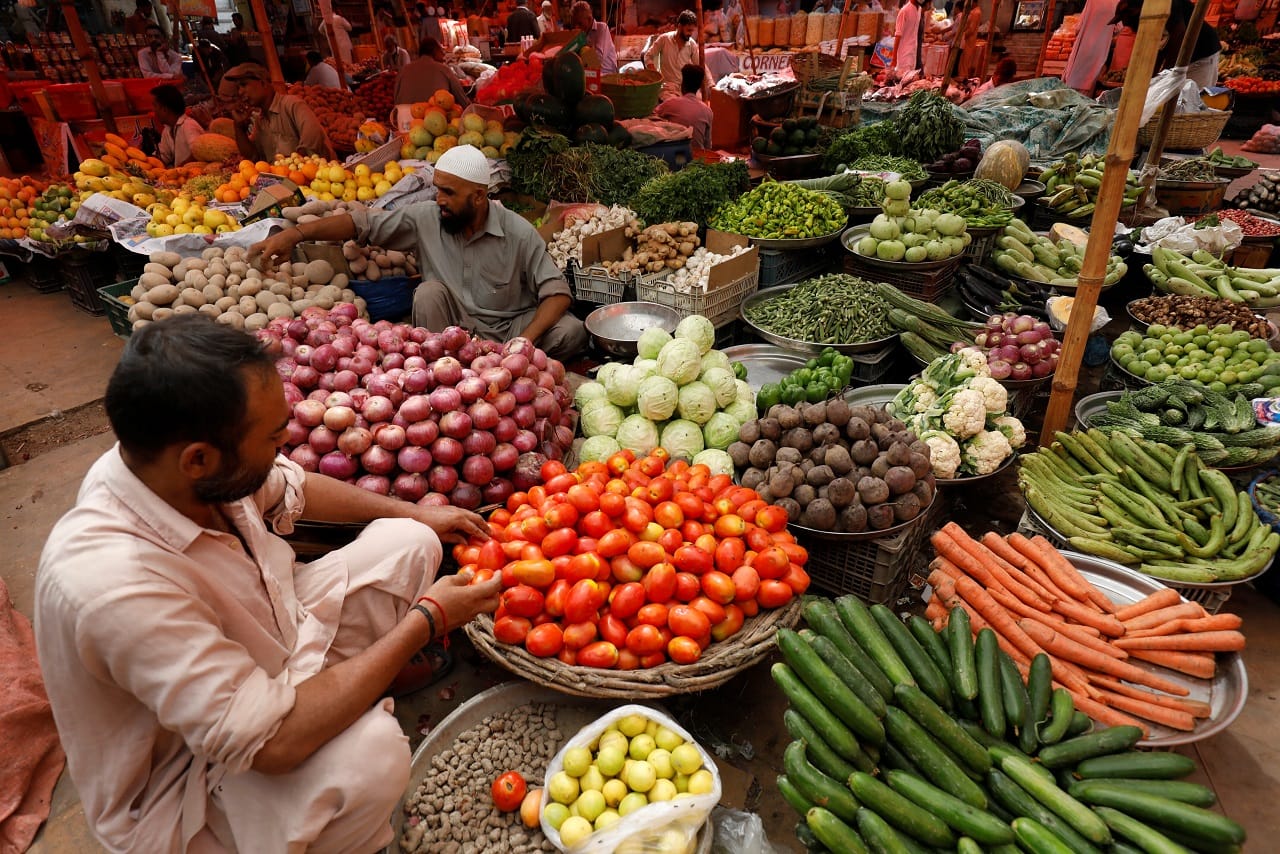 Food inflation crossed the 14 percent mark in Pakistan in February (Image: Reuters)
Food inflation crossed the 14 percent mark in Pakistan in February (Image: Reuters)
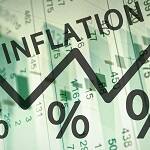
As per the numbers released by the Pakistan Bureau of Statistics, the inflation rate climbed to 13 percent in January - the highest in over two years - before slightly cooling down to 12.2 percent in February.
Food inflation, which has particularly stoked resentment against the government, surged to 14.3 percent in urban areas and 14.6 percent in rural parts in February.
Taking the high inflation rate into consideration, the State Bank of Pakistan, the country's central bank, on April 7 increased the benchmark lending rates by 250 basis points to 12.25 percent.
"The outlook for inflation has deteriorated and risks to external stability have risen," the SBP said following the monetary policy committee meeting, adding that "heightened domestic political uncertainty has contributed to a 5 percent depreciation in the Pakistani rupee".
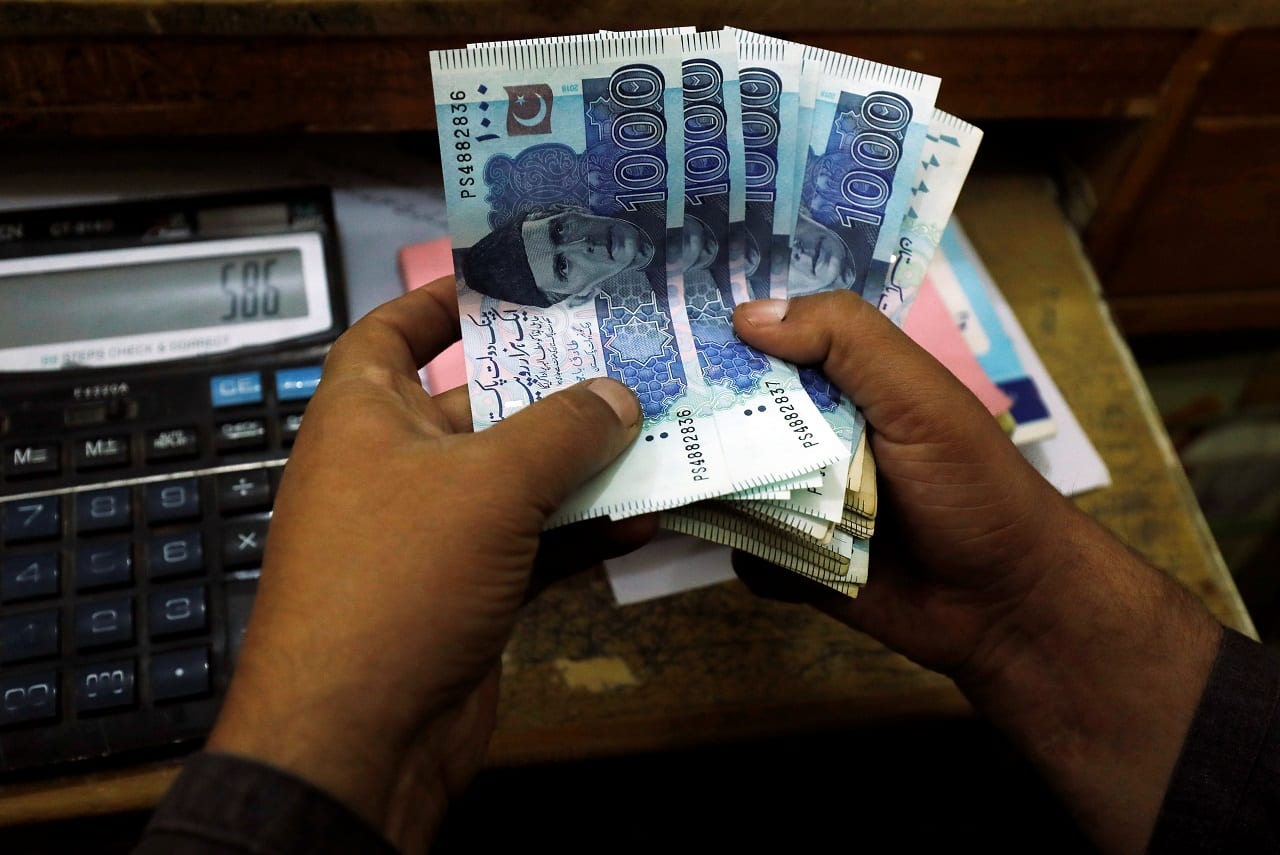 The value of Pakistani rupee has rapidly eroded over the past few months (Image: Reuters)
The value of Pakistani rupee has rapidly eroded over the past few months (Image: Reuters)
One US dollar is now equivalent to 186.28 Pakistani rupees. The latter has lost 42 percent of its value since Khan assumed power, but analysts also point out that the previous government had overvalued the currency for a prolonged period.
The erosion in the rupee's value is linked to the widening current account deficit, which crossed $12 billion mark in the first eight months of FY22, as compared to a surplus of $994 million in the same period of last financial year.
"One of the major criticisms that the government faces is that it did not take economic reforms, which includes structural changes involving a move towards exports of more sophisticated goods relative to textile; introducing market reforms in the commodity and goods market; and increasing the level of competition among producers that would force them to innovate and reduce inflationary pressures," Nakhoda said.
In Pakistan, the army not only dominates the polity but also other aspects of the society including the economy, Professor Chakraborti noted, adding that under such circumstances, it was not possible for the government to increase the manufacturing capacity in a short period.
"The COVID-19 pandemic and other global factors added to the challenges. Imran Khan's priority was to ease the burden on the people. It would be incorrect to blame him solely for the high inflation," he said while noting that the situation is nowhere close to Sri Lanka -- the South Asian neighbour which is witnessing an economic collapse.
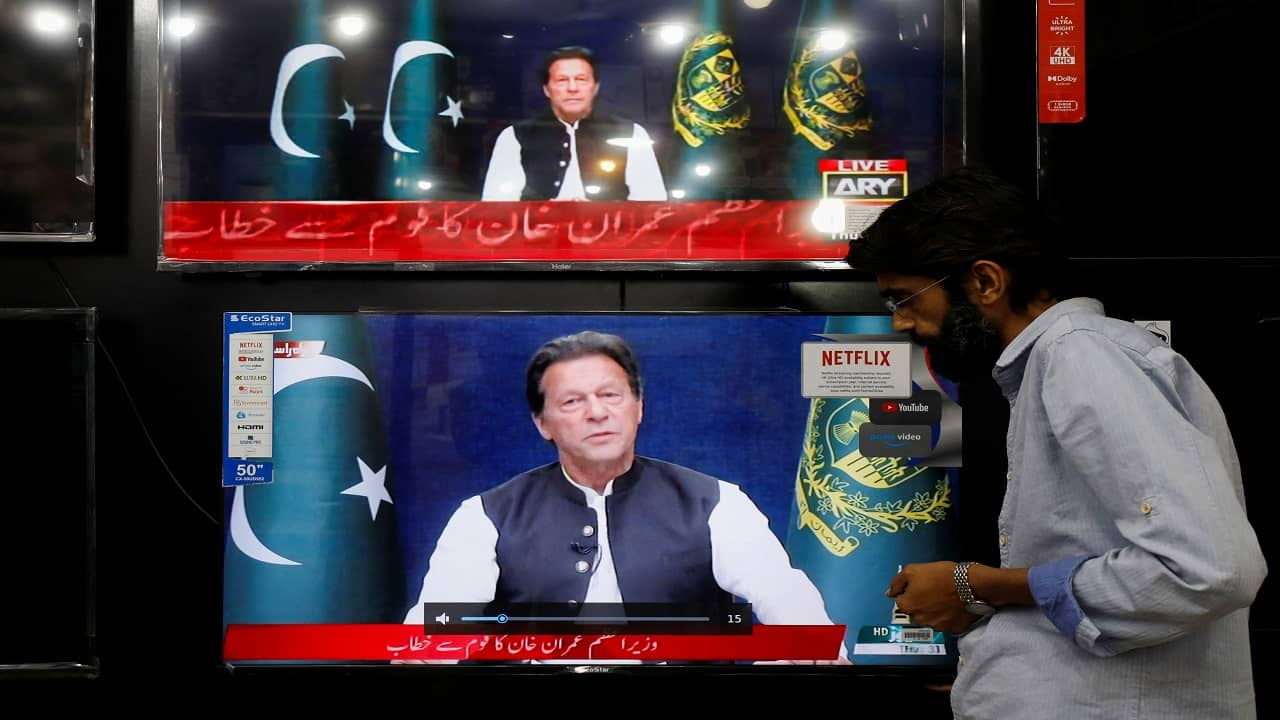 Imran Khan, through televised addresses over the past week, has been attempting to mobilise public support ahead of the no-trust vote (Image: Reuters)
Imran Khan, through televised addresses over the past week, has been attempting to mobilise public support ahead of the no-trust vote (Image: Reuters)
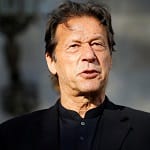
A section of political commentators believe Khan is preparing for a long haul. The televised speeches made over the past week, and the call for a mass demonstration on April 10 suggest that the PTI chief has entered into the electioneering mode.
Khan's imminent defeat in the no-trust vote would be a loss in this political battle, but his goal appears to be winning the long-term electoral war, which would culminate by securing a majority in the next elections.
"People don't easily forget the welfare measures enacted by the government, and this may help Imran Khan in the next elections. But elections are not absolutely free and fair in Pakistan. The army plays a huge role in deciding the outcome. Imran's relationship with the army soured after he opposed the choice of the next ISI boss," Chakraborti said.
Khan had reportedly irked the country's all-powerful military in September last year, after he initially opposed the appointment of Lt Gen Nadeem Anjum as the head of Inter-Services Intelligence (ISI). Since then, local media reports have widely claimed that the prime minister and army chief General Qamar Javed Bajwa were not on the same page.
While Khan has blamed the US of being involved in the "plot" to overthrow his government, Bajwa was all praise for Washington at an event in Islamabad earlier this week.
"We have had historically excellent relations with the United States. The good army we have today is largely built and trained by the States. The best equipment we have is US equipment," Bajwa had said, in response to a question on Pakistan's security cooperation with China over the past decade.
We still have deep cooperation with US and our Western friends. A month back American Air Force was here for a huge exercise with our Air Force. ▫️China of course is a very important neighbour and has helped us in many ways. Our military cooperation with China is growing because pic.twitter.com/q8lUGctXPR— Major Adil Raja (R) (@soldierspeaks) April 4, 2022
"It is very difficult for Imran Khan to come back in power as the Pakistani military is acting against him," Sourish Ghosh, an independent researcher and international affairs expert, told Moneycontrol.
"As Imran has pointed out, it is a battle between power structures," Ghosh said, adding that the military establishment is in favour of the US and Khan has the backing of China. "But Imran's major fault is that he openly started supporting China and was gradually turning Pakistan into a stooge of Beijing, which is antagonistic towards the US," the analyst opined.
The power game with the military aside, Khan's bid to win another term will also primarily depend on whether he is able to convince the electorate of his capability to keep inflation in check if given a second chance.
The task is cut out for the next government as fiscal and monetary tightening will be of utmost importance, Ariba Shahid said, adding that "increasing the tax base, adhering to fiscal prudence and sustainable growth measures should be the way forward". The question remains whether Khan would be ready to shun populism if he gets re-elected.